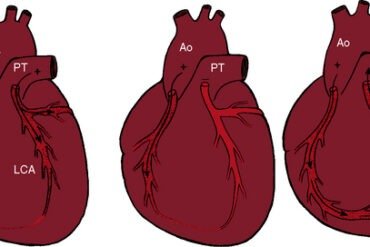Vitamin D Deficiency Symptoms and Solutions

Table of Contents
- Common Symptoms of Vitamin D Deficiency
- Health Risks Associated with Vitamin D Deficiency
- How to Increase Your Vitamin D levels
- Importance of Vitamin D Supplements
- Preventing Vitamin D Deficiency
Common Symptoms of Vitamin D Deficiency
Vitamin D plays a crucial role in our overall health and well-being. It helps regulate calcium and phosphorus levels in the body, promotes strong bones, supports immune function, and even aids in mental health. However, a deficiency in this essential vitamin can lead to various health problems. Here are some common symptoms of vitamin D deficiency to watch out for:
- Fatigue: Feeling tired or lacking energy can be a sign of vitamin D deficiency. If you often experience unexplained fatigue, it may be worth getting your vitamin D levels checked.
- Weakened Immune System: Frequent illnesses or infections can indicate a compromised immune system. Vitamin D plays a crucial role in immune function, so low levels may make you more susceptible to infections.
- Bone and Muscle Pain: Vitamin D aids in the absorption of calcium, vital for bone health. Without sufficient vitamin D, you may experience bone and muscle pain or tenderness.
- Mood Changes: Research suggests a link between vitamin D deficiency and depressive symptoms. If you’re experiencing mood swings or feelings of sadness, it’s worth exploring your vitamin D levels.
- Impaired Wound Healing: Slow wound healing can be a sign of inadequate vitamin D levels. This is because vitamin D plays a role in the production of compounds that promote skin regeneration.
- Hair Loss: While various factors contribute to hair loss, low vitamin D levels can influence hair health. If you notice excessive hair shedding, it may be worth investigating your vitamin D status.
If you are experiencing any of these symptoms, it’s important to consult with a healthcare professional. They can perform a blood test to measure your vitamin D levels and recommend appropriate supplementation or dietary changes to address the deficiency. Additionally, spending time outdoors and getting sunlight exposure can help boost vitamin D synthesis in your skin.
Remember, maintaining adequate vitamin D levels is crucial for your overall health. By being aware of these common symptoms, you can take proactive steps to ensure you’re getting enough vitamin D and mitigating any potential deficiencies.
Health Risks Associated with Vitamin D Deficiency
Vitamin D is vital for maintaining overall health and plays a crucial role in various bodily functions. However, a deficiency in this essential vitamin can lead to numerous health risks. Here are some of the potential health problems associated with Vitamin D deficiency:
- Weakened Immune System: Lack of Vitamin D can compromise your immune system, making you more susceptible to infections, colds, and flu.
- Increased Risk of Osteoporosis: Vitamin D aids in the absorption of calcium, which is necessary for maintaining strong and healthy bones. Insufficient levels of Vitamin D can lead to low bone density and an increased risk of osteoporosis.
- Muscle Weakness: Vitamin D deficiency is often linked to muscle weakness and pain. This can affect your daily activities and overall strength.
- Greater Risk of Cardiovascular Diseases: Studies suggest that Vitamin D deficiency may increase the risk of developing cardiovascular problems, such as hypertension, heart disease, and stroke.
- Mood Disorders: Low levels of Vitamin D have been associated with an increased risk of mood disorders, including depression and Seasonal Affective Disorder (SAD).
- Impaired Cognitive Function: Vitamin D plays a role in brain health, and inadequate levels have been linked to cognitive decline, dementia, and a higher risk of developing conditions like Alzheimer’s disease.
It is important to recognize the symptoms of Vitamin D deficiency and take appropriate measures to address it. Exposure to sunlight, consuming Vitamin D-rich foods like fatty fish, eggs, and fortified dairy products, and taking supplements under medical guidance can help combat the risks associated with deficiency.
How to Increase Your Vitamin D Levels
Vitamin D is an essential nutrient that plays a crucial role in maintaining overall health and well-being. Unfortunately, many people suffer from vitamin D deficiency, which can lead to a variety of symptoms and health problems. If you suspect you have low vitamin D levels, here are some effective ways to increase it:
- Get Sunlight: The most natural way to boost your vitamin D levels is by exposing your skin to sunlight. Spend around 10-15 minutes in the sun each day, preferably during the midday when the sun’s rays are strongest. Be sure to expose a large area of your skin, such as your arms, legs, or back.
- Consume Vitamin D-rich Foods: Incorporate foods rich in vitamin D in your diet. Fatty fish like salmon, trout, and mackerel are excellent sources. Other options include fortified dairy products, egg yolks, and mushrooms. Consider adding these foods to your meals regularly.
- Take Vitamin D Supplements: If you struggle to get enough vitamin D through sunlight and diet alone, supplements can be a convenient option. Consult your healthcare provider to determine the right dosage for your needs.
- Optimize Your Diet: Along with vitamin D, certain nutrients assist in its absorption and utilization. Make sure you’re getting enough calcium, magnesium, and zinc. These minerals can be found in leafy greens, nuts, seeds, and whole grains.
- Consider UVB Light Therapy: In cases of severe deficiency, supervised UVB light therapy may be recommended by a healthcare professional. This controlled treatment exposes your skin to ultraviolet light to stimulate vitamin D production.
- Regular Blood Tests: Periodic blood tests are vital to monitor your vitamin D levels. This will help determine if you need to make further adjustments to your supplementation or lifestyle habits.
- Maintain a Healthy Lifestyle: Engage in regular exercise, as it may increase your vitamin D levels. Additionally, managing stress, getting enough sleep, and adopting a balanced diet will contribute to overall health and support optimal vitamin D levels.
Remember, if you suspect vitamin D deficiency or experience symptoms such as fatigue, weakened immune system, and bone or muscle pain, it’s essential to consult with a healthcare professional. They can provide personalized advice and recommend suitable interventions to address your specific needs.
Importance of Vitamin D Supplements
Vitamin D is an essential nutrient that plays a crucial role in maintaining overall health. It helps regulate calcium and phosphorus absorption, aids in cell communication, supports immune function, and promotes bone health. While our bodies can naturally produce vitamin D when exposed to sunlight, many individuals might not get sufficient sun exposure or have limited dietary sources.
Due to lifestyle factors, such as spending more time indoors or living in areas with limited sunlight, vitamin D deficiency has become prevalent. If left untreated, it can lead to various health problems. Therefore, vitamin D supplementation is crucial to ensure optimal levels of this vital nutrient.
Here are some key reasons to consider taking vitamin D supplements:
- Strengthening Bone Health: Vitamin D plays a crucial role in calcium absorption, which is essential for maintaining strong bones and teeth. Supplementing with vitamin D can help prevent conditions like osteoporosis and osteomalacia.
- Enhancing Immune Function: Vitamin D strengthens the immune system and can help reduce the risk of respiratory infections, such as the common cold or flu.
- Supporting Mental Health: Research suggests that vitamin D supplementation may have a positive impact on mental health. It may help alleviate symptoms of depression, anxiety, and seasonal affective disorder (SAD).
- Reducing the Risk of Chronic Diseases: Some studies indicate that maintaining optimal vitamin D levels may lower the risk of developing chronic diseases, including heart disease, multiple sclerosis, type 1 diabetes, and certain types of cancer.
- Improving Muscle Strength: Vitamin D supplementation has been associated with enhanced muscle strength, reduced risk of falls, and improved physical performance, especially in older adults.
While it is best to consult a healthcare professional for guidance on appropriate dosage, most adults generally require 600 to 800 international units (IU) of vitamin D per day. However, individual needs may vary, depending on factors like age, health conditions, and geographical location.
Remember that vitamin D supplements should be used alongside a healthy lifestyle, including a balanced diet and regular physical activity. Soaking up sunlight for a short period each day, especially during early morning or late afternoon, can also help boost your vitamin D levels naturally.
In conclusion, ensuring adequate vitamin D levels is essential for overall health and well-being. If sunlight exposure or dietary sources are limited, vitamin D supplementation can significantly support bone health, immune function, mental health, and reduce the risk of chronic diseases.
Preventing Vitamin D Deficiency
Vitamin D is an essential nutrient that plays a crucial role in maintaining bone health, supporting the immune system, and regulating mood. However, many individuals suffer from vitamin D deficiency due to limited sun exposure, dietary preferences, or certain medical conditions. To prevent vitamin D deficiency, follow these solutions:
- Expose Your Skin to Sunlight: The primary source of vitamin D is sunlight. Spend some time outdoors, especially during the early morning or late afternoon when the sun is not too intense. Expose your face, arms, and legs to the sun for about 10-15 minutes daily.
- Consume Vitamin D-Rich Foods: Include foods that are naturally high in vitamin D. Fatty fish like salmon, sardines, and mackerel are excellent sources. Other options include dairy products fortified with vitamin D, eggs, and mushrooms.
- Consider Vitamin D Supplements: If getting enough sunlight and dietary sources are challenging, consult your healthcare provider about taking vitamin D supplements. They can help determine the appropriate dosage and provide recommendations.
- Read Supplement Labels: When opting for supplements, it is essential to read the labels carefully. Look for vitamin D3 (cholecalciferol) as it is the more effective form for supplementation.
- Be Mindful of Sunscreen Usage: While protecting your skin from harmful UV rays is crucial, sunscreen with high SPF can limit the amount of vitamin D your body produces. Balance between sunlight exposure and sunscreen usage to maintain optimal vitamin D levels.
- Regular Blood Tests: Monitor your vitamin D levels through regular blood tests. This will help you understand your current status and enable adjustments in your sun exposure, diet, or supplement routine as necessary.
By incorporating these preventive measures into your lifestyle, you can reduce the risk of developing vitamin D deficiency and ensure your body receives the necessary vitamin D levels for overall health and well-being.


























